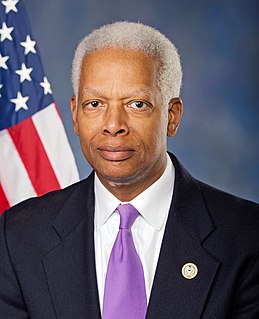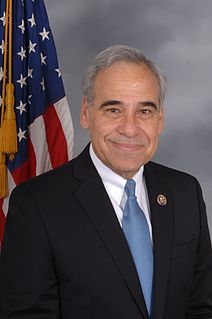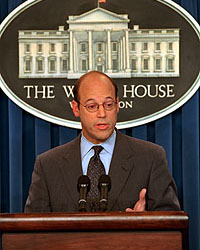A Quote by Mitch McConnell
President Obama had two Supreme Court nominees in his first term. There was no filibuster against them.
Quote Topics
Related Quotes
When President Donald Trump nominated Judge Neil Gorsuch to serve on the Supreme Court, I said that he deserved a fair hearing and a vote. I said this even though Senate Republicans filibustered dozens of President Obama's judicial nominees and then stopped President Obama's Supreme Court nominee, Judge Merrick Garland.
With Republicans in control of the Senate for the first time since Barack Obama took office, the president may find it harder to appoint left-wing lawyers to judgeships. Whether he compromises on some of his nominees, including any to the Supreme Court, may depend on the willingness of the new Republican majority to engage the president on judicial philosophy.
During the Obama years, the Republicans have done an unprecedented amount of stonewalling on cabinet-and-below appointees. I would also argue that their war on judicial nominees has been way beyond what went before. Really, if the president nominated God to serve on the D.C. Court of Appeals, Mitch McConnell would threaten a filibuster.
When it comes to the Supreme Court, the American people have only two times when they have any input into how our Constitution is interpreted and who will have the privilege to do so.First, we elect a president who has the power to nominate justices to the Supreme Court.Second, the people, acting through their representatives in the Senate, have their say on whether the president's nominee should in fact be confirmed.
The notion that the Supreme Court comes up with the ruling and that automatically subjects the two other branches to following it defies everything there is about the three equal branches of government. The Supreme Court is not the supreme branch. And for God's sake, it isn't the Supreme Being. It is the Supreme Court.
Class warfare always sounds good. Taking action against the rich and the powerful and making 'em pay for what they do, it always sounds good. But that's not the job of the Supreme Court. The Supreme Court standing on the side of the American people? The Supreme Court adjudicates the law. The Supreme Court determines the constitutionality of things and other things. The Supreme Court's gotten way out of focus, in my opinion.
It is important that Miers not be confirmed unless, in her 61st year, she suddenly and unexpectedly is found to have hitherto undisclosed interests and talents pertinent to the court's role. Otherwise the sound principle of substantial deference to a president's choice of judicial nominees will dissolve into a rationalization for senatorial abdication of the duty to hold presidents to some standards of seriousness that will prevent them from reducing the Supreme Court to a private plaything useful for fulfilling whims on behalf of friends.


































